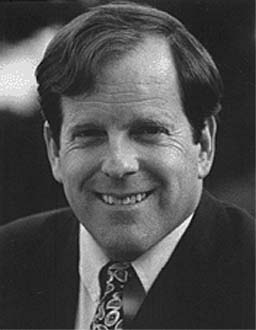
The Sierra Club is now slashing programs, including staff in Portland, after exhausting much of its financial backing to battle Bush administration policies and spending millions in a failed drive to defeat the president. "We've been saying, 'Dig deep,' and people have," Carl Pope said. "The reality of that now is that people are going to give us less because they have less left to give us."
Activists' new cause: restoring their clout
The president's re-election shows environmentalists have lost favor with the public, and groups are divided on how to win it back
Thursday, February 03, 2005
MICHAEL MILSTEIN
A decade ago, environmental groups dominated the national agenda -- reshaping forest policy, carving out new wildlife protections and winning favor with much of the American public.
But today they face the stinging realization that their influence is waning. The public is tuning them out. Their longtime tactics, many admit, are no longer working so well. And they are divided over how to regain the lost ground.
Last year's presidential election offered the latest evidence. Conservation groups knocked on thousands of doors in Oregon and other states to tell voters President Bush has an abysmal environmental record. But it did not prevent his re-election. They could scarcely persuade Democrat John Kerry, whom they claim as a political ally, to raise the environment in his race against the president.
"They don't nearly have the credibility they did 20 or 30 years ago," said Tim Hibbitts of the Portland public research company Davis, Hibbitts & Midghall Inc. While Oregon's attitude toward environmental groups was once uniformly favorable, he said, today it's neutral to slightly negative at best.
That's a marked shift in the public discourse about natural resource protections. The groups have long framed debate over the nation's most contentious environmental issues -- from old-growth logging to endangered species laws.
The erosion of public backing, combined with opposing political winds, has weakened the groups' power. They have watched in frustration as the Bush administration relaxed land and wildlife protections they had fought for. For instance, Bush officials undid Clinton administration safeguards for largely unlogged, roadless regions of national forests and loosened limits on snowmobiles in national parks.
"The environmental community seems to be at a new low for the amount of influence it has," said Noah Greenwald, a biologist based in Portland for the Center for Biological Diversity.
It's a turning point for a movement that may have itself to blame, some leaders say. They sense that some citizens who believe in environmental protection have come to see the groups advocating it as increasingly divisive, distant and irrelevant, some say.
"They share our values -- they don't understand our solutions, and that's a failure of ours," said Carl Pope, executive director of the Sierra Club.
It leaves the groups weakened at the same time they want extra strength to stand up against what they say is a widening Bush administration rollback of environmental protections.
The Sierra Club is now slashing programs, including staff in Portland, after exhausting much of its financial backing to battle Bush administration policies and spending millions in a failed drive to defeat the president.
"We've been saying, 'Dig deep,' and people have," Pope said. "The reality of that now is that people are going to give us less because they have less left to give us."
There are disagreements within the environmental movement, and even among groups themselves, about how far off-track the movement is and where to go next. Some contend the Bush administration has co-opted their green lingo by labeling its initiatives with terms such as "healthy forests" -- and unfairly painted them as extremists while undertaking extreme actions of its own.
The administration's moves have galvanized environmentalists enough that the Sierra Club's membership has grown about 20 percent since Bush's election in 2000.
But there is also concern that the environmental movement's traditional strategies such as expansive lawsuits and warnings of crisis may have alienated a broader public weary of bickering over natural resources.
"When the general public thinks about environmentalism, they think conflict, they think negativity, they think using a heavy hand to get things done," said Susan Ash of the Audubon Society of Portland.
"We've hurt ourselves by concentrating mostly on litigation," she said. "But if we were not doing that the federal government would be getting away with not following their own rules and regulations. We've come a long way in holding our government accountable, but at the same time we've marginalized ourselves in the public's eye."
Although groups said they have long viewed lawsuits as a last resort, some said they have become even more reluctant about going to court.
They intensely debated a joint decision to fight logging of trees burned by the 2002 Biscuit fire in Southern Oregon's Siskiyou National Forest. In the end, they sued over logging in older forest reserves and roadless areas but did not try to block cutting on other lands designated for commercial logging.
"At the end of the day, we did want to show some balance and I hope the public saw that," said Randy Spivak of the American Lands Alliance.
The most important question facing conservation groups, Ash said, is, "how we get back to being viewed as credible by the public."
Crying wolf
Their credibility has dissolved in part because some Oregonians blame them for the loss of logging jobs tied to protections for federal forests and the spotted owl, Hibbitts said. The public also has grown weary of their dire warnings of environmental damage.
"The perception, fairly or unfairly, is, 'They've cried wolf too many times, and I'm not sure I can believe what they say,' " Hibbitts said. Groups may have turned the public off at the same time the economy has eclipsed the environment as a public concern.
"They probably should look to some of the behavior they've engaged in that's caused them some of these problems," Hibbitts said.
Environmental groups have accused the Bush administration of pillaging national forests. But logging under Bush has sunk at least 20 percent below levels in the last year of the Clinton administration, which environmentalists saw as friendlier.
"They continue to vilify George W. Bush as a fund-raising tool, and the public is beginning to see through that," said Chris West of the American Forest Resource Council, a timber industry group in Portland.
Still, the Bush administration in fiscal 2004 sold 24 percent more national forest timber than the Clinton administration did in its final year, so more will be available for logging in coming years.
Environmental groups insist the presidential election did not reflect public thinking on conservation issues because Iraq and the economy dominated debate instead. But they say it has become difficult to keep the attention of Americans who may take environmental safeguards for granted.
"Many voters just assume the environment's going to be protected no matter who's in office," said Steve Pedery of the Oregon Natural Resources Council. "We have done a pretty poor job explaining why these issues are relevant to people's daily lives."
Groups have often sued over remote timber sales and dwelled on bureaucratic rules far removed from the average citizen.
Reconnecting with the public
Some say they must better educate the public about the Bush administration's actions. But others argue for a new strategy. Instead of collaborating with one another, they say, environmentalists must work more directly with a public they have otherwise lost touch with.
"We've looked to the courts for help with very good reason, but the consequence of that is we have become too distant from the larger public," said Don Smith of the Siskiyou Project in Southwest Oregon. "We talk to ourselves and we scratch our heads wondering why other people aren't listening to us."
Instead of trying to broker political power amid the unfriendly atmosphere of Washington, D.C., some leaders say they may do better building local alliances that hinge on civic and state governments closer to citizens.
Efforts to inform Oregonians about fallout from Measure 37, which requires governments to compensate landowners for land-use restrictions, may help conservation groups build bridges, Ash said.
But the groups also could forgo the sweeping victories they won in the past, such as the shutdown of most federal lands logging in the Northwest. Successes today more likely may come from cooperation than confrontation, they say.
"We can no longer view the environmental movement as us versus them," Ash said. "We're trying to seek some kind of common ground where we can reach agreement. We're going to have to concentrate on very small, incremental achievements as opposed to these big laws and litigation."
An example could be a Nevada wilderness bill Bush signed in December. It did not give environmentalists all they wanted, but it protected 768,294 acres from development. Locals get money from the sale of about 90,000 federal acres and a pathway for a water pipeline to supply booming Las Vegas.
The concessions to rural communities won support that the bill would not have had otherwise, said Ken Rait, based in Portland for the Campaign for America's Wilderness.
"The bankrupt approach is to do what's not working because we know how to do it," he said. "The better approach is to find new ways to go at the same issues."
Michael Milstein: 503-294-7689; michaelmilstein@news.oregonian.com








